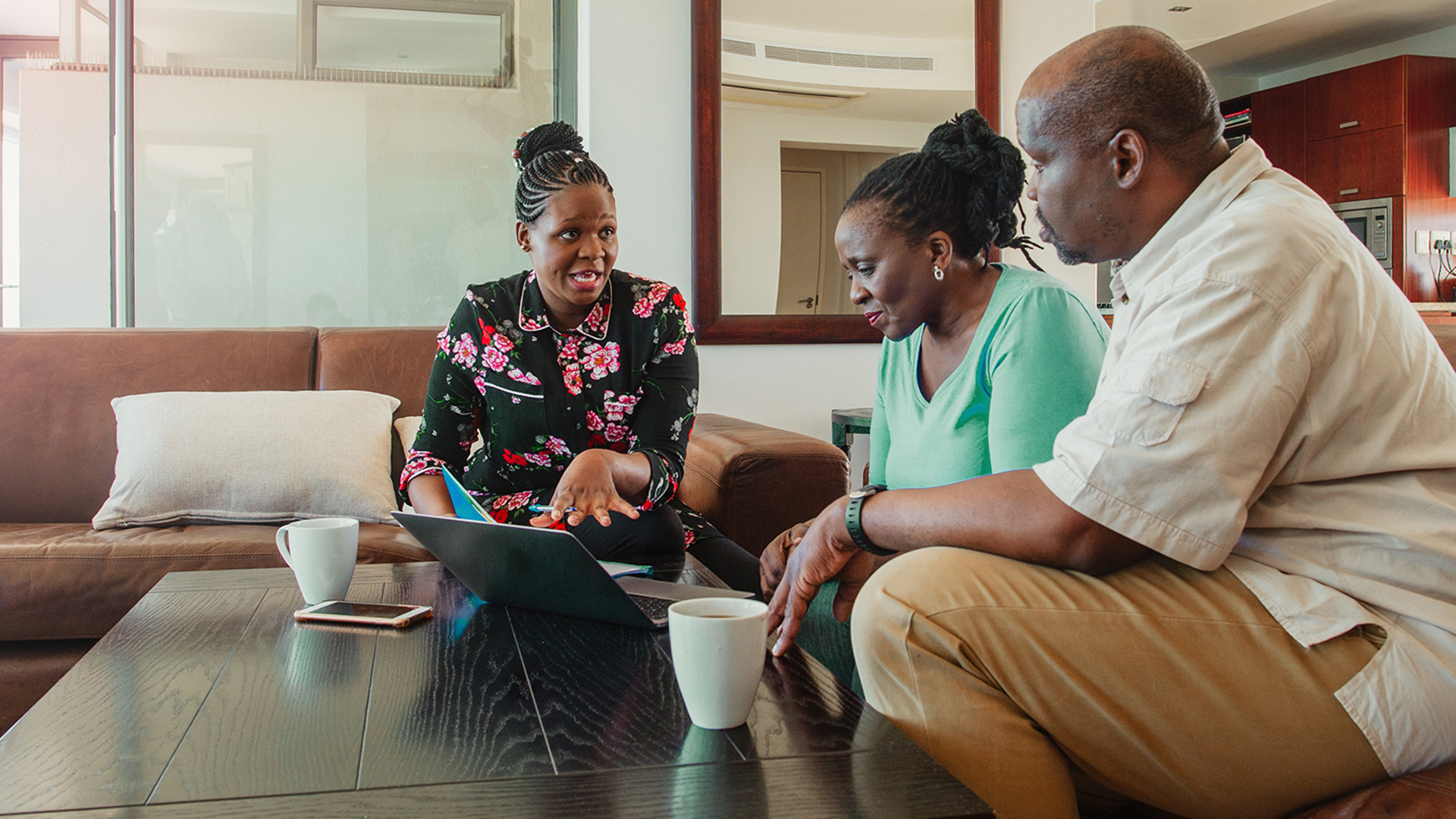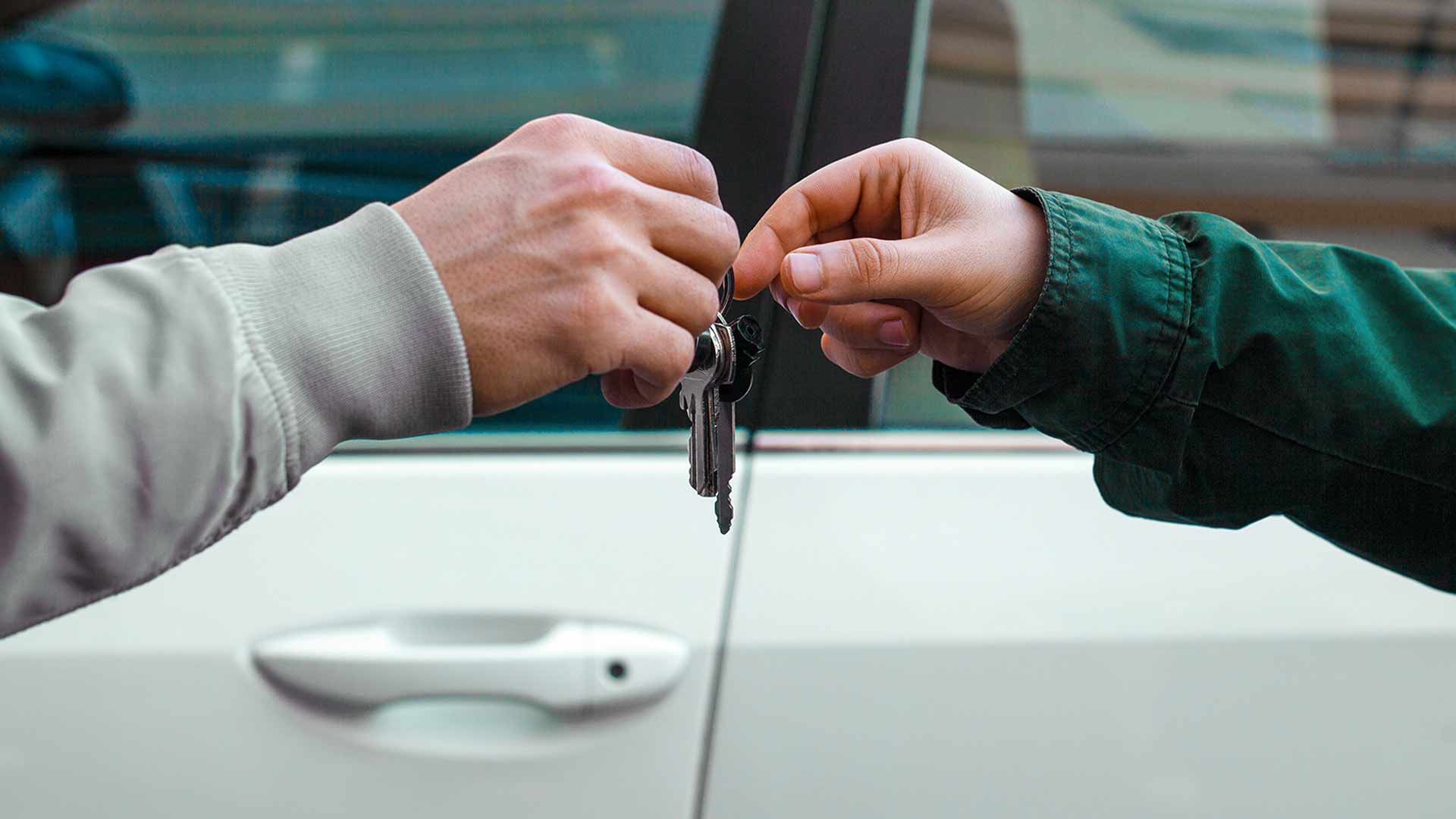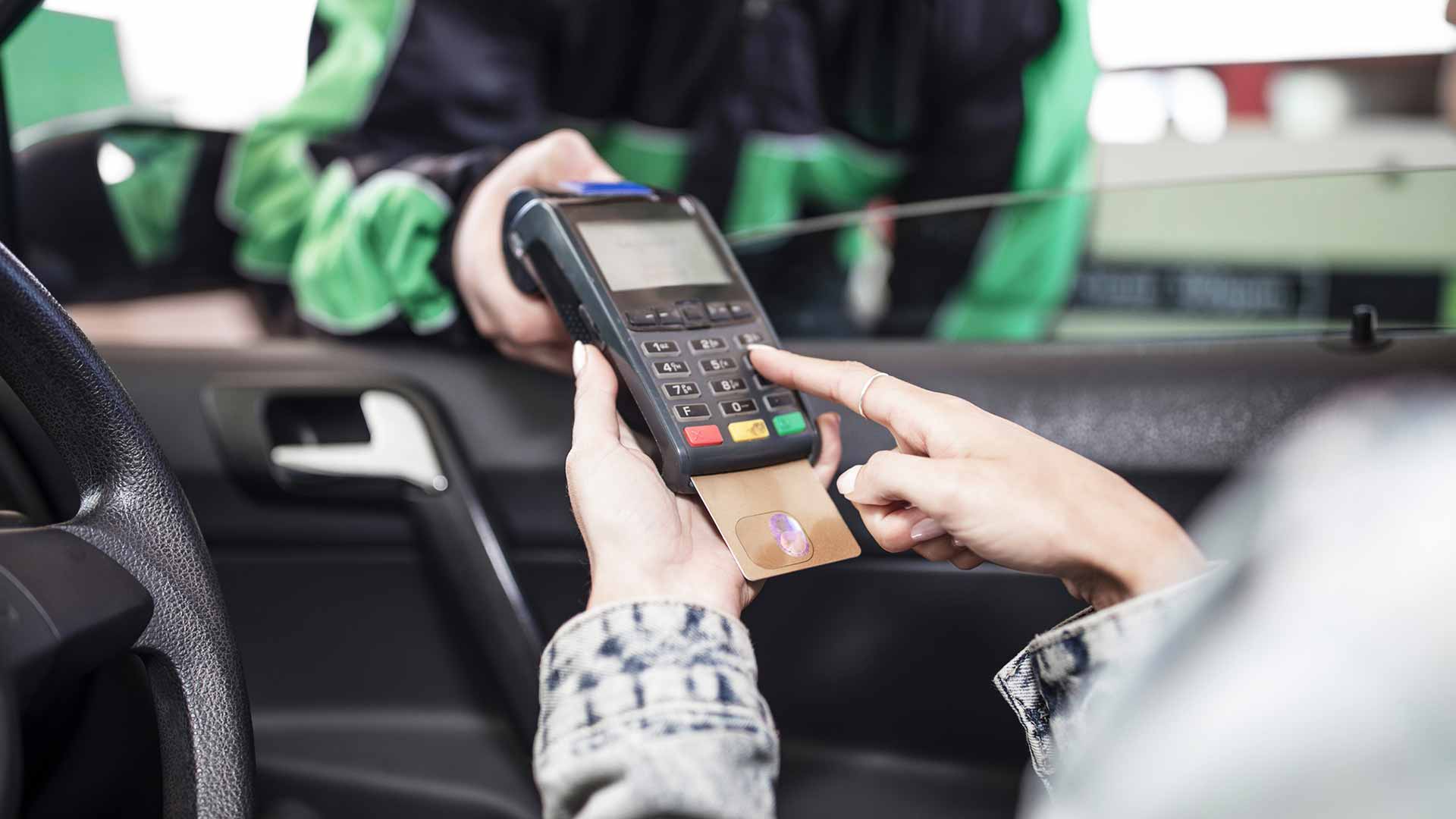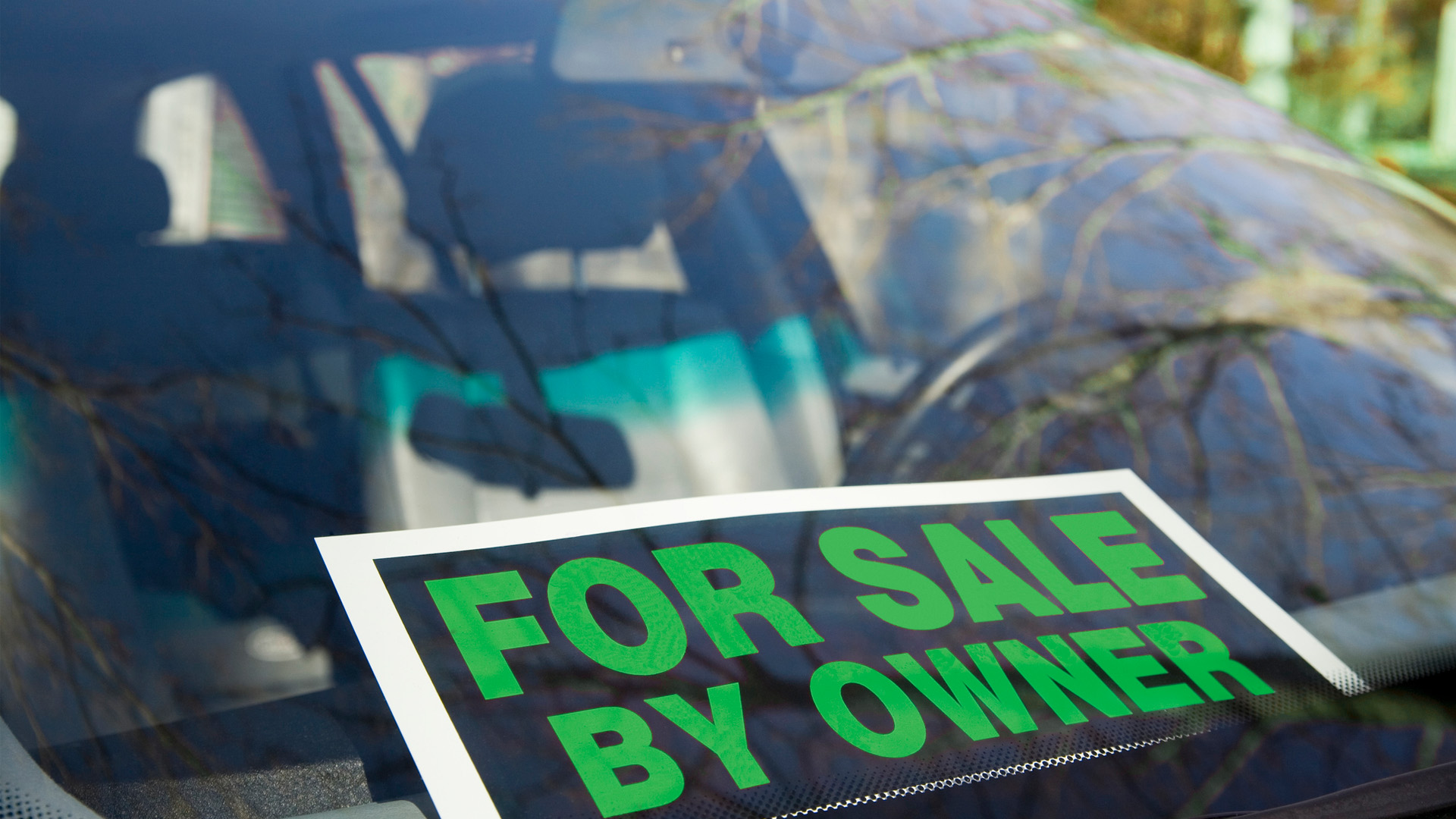When you’re shopping around for a car, you first need to work out what you can afford. Factor in running costs like fuel, insurance and maintenance. Your biggest cost upfront, of course, will be the price of the vehicle. Do you have your heart set on something brand-new, or are you prepared to shop around for a used car that meets your needs?
On the subject of shopping around, whether it’s a new or used car you’re after, take a look at Avo Auto, Nedbank’s digital vehicle sales app. You’ll find a huge range of cars for sale, both new and used. If you find one you like, you can even arrange financing right there on the app.
In the end, your budget may be the deciding factor when you choose a set of wheels. But whether a car is affordable may also depend on how you choose to pay for it. In South Africa, there are 3 ways to get your own car: pay upfront with cash, finance it via a bank, or lease it. The option that’s right for you depends on your financial circumstances and personal preference.
Should you buy your car with cash?
You can save money in a dedicated investment account to buy a new or used car with cash. Using a Nedbank JustInvest account as an example, if you can save R2,000 a month, compound interest will grow your investment to R100,000 in about 4 years, and to more than R150,000 in 5 years.
There are some clear benefits to buying a car with cash.
- Your credit history and credit score, which is a key consideration when you apply to finance or lease a vehicle, will not be a factor.
- You also won’t have to bother with any of the documents or red tape needed when you sign a finance or lease agreement.
- Having ready cash can give you the power to negotiate a better price for a car, whether you’re buying from a dealership or a private seller.
- You won’t have loan or lease payments to make, so your monthly running costs will include only fuel, maintenance and insurance.
- The car becomes yours the moment you buy it, and you can customise it or sell it whenever you want to.
- You won’t have to worry about mileage or any other restrictive clauses that may apply in a lease agreement.
Of course, the main downside of buying in cash is the time it takes to save enough. Saving an extra R2,000 a month can be a challenge for most of us. Even if you manage to stick to your savings plan, it will take you 4 or 5 years before you can afford even a modest new or used car. Throughout that time, you will still have alternative transport expenses to pay. Remember also that inflation over several years can raise the price of a new car. You would have to factor the projected price after 4 or 5 more years into your investment calculations.
The value of a vehicle also depreciates constantly from the moment you buy it. If you pay cash for a car and you intend to replace it after, say, 6 years, you need to work out how much you will be able to sell it for in 6 years’ time. If you plan to buy your next car with cash too, you’ll need to start saving right away, so that you’ll be able to afford the shortfall when you trade in your current vehicle.
Financing a car
Most people buy cars with a vehicle finance loan from a financial services provider. You then pay back the loan in monthly instalments over an agreed period, usually up to 72 months.
A car bought with vehicle finance remains the property of the lender until you pay off the loan
As with cash, you can use vehicle finance to buy a new or used car from a dealership or a private seller. Note, however, that if you want to finance a used car, in most cases it must be less than 10 years old and valued at more than R50,000. It cannot be a recovered stolen vehicle either.
Using finance to buy your car comes with its own advantages. These include:
- You can use the car immediately. Once you've been approved for vehicle finance, you can take possession of the car and solve your transport problem right away.
- Predictable, affordable payments. Your loan repayments are calculated on the price of the vehicle, plus administration fees and monthly interest. When you sign your loan agreement, these costs are explained in writing, so you’ll know exactly how much you need every month to cover monthly payments for the duration of the loan. You won’t have to estimate how much a new car would cost after 5 years of inflation, as you would if you were saving to buy it.
- If you save a deposit of 10% or 20% of the price of the car before you buy it, you will need a smaller loan, which will be more affordable. Or you can opt for a balloon payment, which is like a deposit that you pay at the end of the loan period. A balloon payment can make your monthly instalments more affordable, but you must remember to plan and save so that you can afford the larger final payment when it is due.
- Making loan payments in full and on time every month can help improve your credit score. This is useful when you’re applying for other forms of credit, or when you want to finance your next car.
A car bought with vehicle finance remains the property of the lender until you pay off the loan, after which you become the legal owner. However, bear in mind that if you default on the loan, the lender may repossess the car.
You will also face the problem of depreciation. Even though you’re paying off a bit more towards the total cost every month, the asset is losing value. It’s a good idea to work out the break-even point – the moment when the amount you still owe on the car is equal to the price you could sell it for. When you reach the break-even point, you can sell the car to pay off the rest of your loan, then enter another financing agreement to buy your next car.
Leasing a car
Leasing is a form of vehicle financing that allows you to pay for the use of the car for a certain period (typically 3 years, but leases of between 2 and 5 years are also common). You’ll generally have to make an upfront payment, plus monthly payments for the duration of the lease agreement. The financial services provider owns the car for the duration of the lease.
When you return the car, a lease agent will inspect the car for any damage
At the end of the lease agreement, you can choose to return the car and sign a lease agreement on another vehicle. Or you can pay the lender the guaranteed future value of the car and take ownership.
There are several benefits to leasing a car, including:
- Affordability. You won’t be paying off the full purchase price. Instead, you pay a deposit and regular lease payments, which can make it more affordable than financing the car.
- Predictability. The monthly payments are set for the duration of the lease, which makes it easy for you to budget.
- Regular upgrades. Since lease deals are relatively short, you can drive a new car with the latest features every few years. This is probably the biggest advantage for drivers who take their motoring seriously. Yes, you can replace your car every 3 to 5 years even if you’re paying cash or relying on vehicle finance, but leasing makes the process much less complicated. You don’t have to worry about depreciation rates or break-even points.
- Tax rebates. If you use the car for business or work, you may be able to claim a tax deduction on any leasing costs. Consult a tax adviser to discuss your options.
On a less positive note, a lease agreement may also stipulate the maximum number of kilometres you can drive in a month. You’ll have to pay extra whenever you exceed that limit. Ending the contract early may also trigger a financial penalty.
At the end of the lease, when you return the car, a lease agent will inspect the car for any damage, and you’ll have to pay extra for anything that isn’t considered regular wear and tear.
Which option is best for you?
Each of the 3 routes to car ownership has its own pros and cons. Choose the one best suited to your situation. If you’re uneasy about taking on debt and you can commit to putting money away every month without fail, saving up to pay cash might be your best option. If you want a car right away and you meet the credit requirements, vehicle finance makes sense. If you want to drive a new car every few years and you don’t want to own a depreciating asset, leasing might suit you better.
Talk to MFC, a division of Nedbank, about your car needs and finance options.







